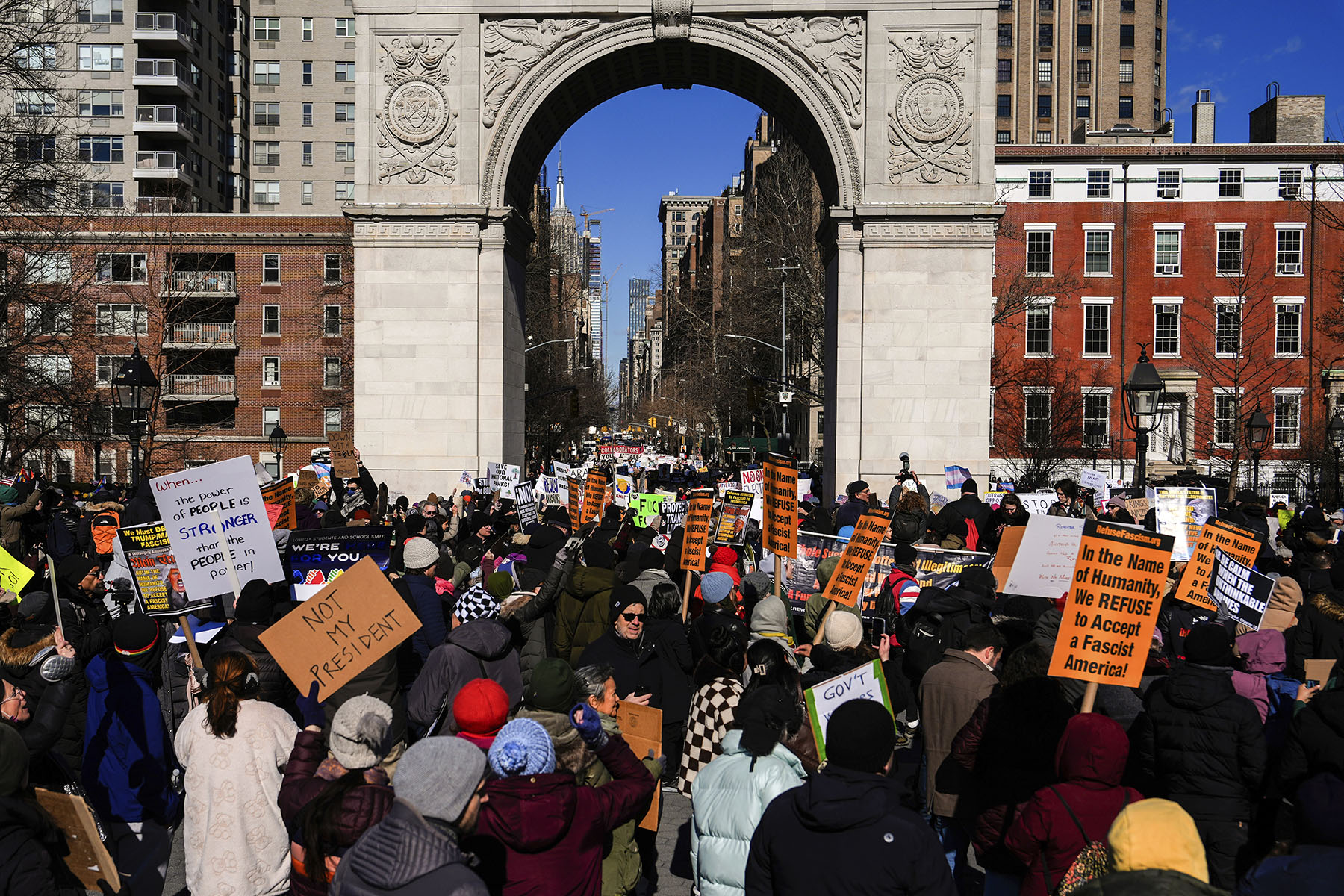Govt move could impact public health and innovation, academic groups say

Academic groups from US higher education institutions are staging protests against research funding cuts at numerous federal agencies, ordered by the Trump administration.
The funding freeze has sparked concern among researchers, educators and scientists, who say such cuts could have "long-term consequences for innovation and public health".
Hundreds of research fellows from leading institutions, including Weill Cornell Medicine, Columbia University, Albert Einstein College of Medicine, The Rockefeller University, New York University, and The City University of New York, gathered in Washington Square Park in New York to protest funding cuts and suspended funding in numerous research areas.
READ MORE: Trump can continue mass firings despite disruption and chaos, US judge rules
Braving freezing temperatures and strong winds, the protesters held signs and chanted slogans.
A wave of executive orders signed by President Donald Trump — focusing on education, climate change, healthcare and diversity — has led to a sweeping freeze on federal spending.
In collaboration with the new administration, the Department of Government Efficiency, or DOGE, led by Elon Musk, has intensified efforts to reduce government spending by tightening expenditure oversight.
The funding changes have led scientists, educators and research fellows to reassess their work.
Thomas Hill, director of New York University's peace research and education program, told China Daily that his four-year peacebuilding initiative in Colombia, Libya and Moldova was abruptly shut down last week.
"We've been funded by the US Department of State to work in programs. Now, that bureau that was funding us essentially no longer exists. So there's no funding available," he said. "There was an executive order, and everybody was let go. There are no people working there now.
"It's unfortunate that everything has become so politicized and the country so polarized," Hill said. "I hope this crisis wakes people up and helps them see that we can't continue if all public services are cut — not just academia, but healthcare and education. The entire public sector is under attack."
Bid to slash debt
The Trump administration is attempting to reduce a $36 trillion national debt and a $2 trillion federal deficit.
Funding has also been paused at the National Institutes of Health, or NIH.
The NIH announced on Feb 14 that it would reduce grants allocated to research institutions by capping "indirect funding" for research projects at 15 percent. That measure will substantially cut federal spending on indirect costs essential for the operation of universities and research institutes, including expenses for new equipment, maintenance, utilities and support staff.
Protesters said such administrative items are still necessary to maintain the lab.
ALSO READ: Thousands fired as Trump, Musk take ax to US government offices
"We strongly believe in continued funding for education and research — especially health and science research. It's terrible to see funding drained from these vital areas of learning and knowledge," Dana Calvin, a doctoral student at Hunter College in New York, told China Daily.
She said the current funding cut has not directly impacted her yet, but she is deeply committed to research. She finds it frustrating to see her colleagues — or anyone in academia — face these challenges.
"Research projects need to be funded, and cutting that funding is a real detriment to everyone in our country," she said.
"Most of the funding comes from the NIH, and I can only hope that critical research doesn't get cut," Sebastian Aymat, a general surgeon who recently graduated from medical school, told China Daily.
"I think it's just horrible, and no one elected the richest man in the world to start doing whatever he wants with the US government and our services, and I think it's just crazy."



